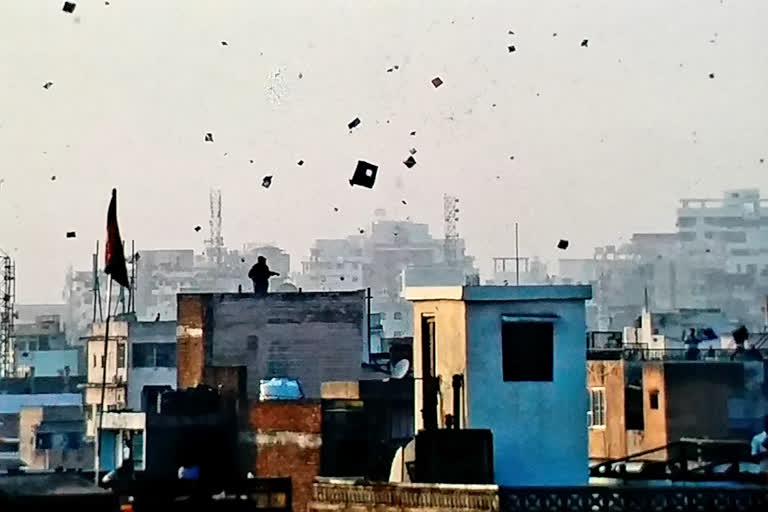Jaipur:Makar Sankranti is celebrated with much pomp in Jaipur and holds great significance for everyone, as it is homecoming in many parts of India. The festival is considered auspicious as mentioned in the ancient scriptures. Sankranti is the beginning of the harvest season when people worship new crops and share them with delight.
This festival has a wide variety of names called in differents states like Makar Sankranti or Uttarayan is called in Jaipur, Makar Sankranti in Telangana and Maharashtra, Karnataka while Poush Sankranti in West Bengal, Pongal in Tamil Nadu, Pedda Panduga in Andhra Pradesh, Magh Bihu in Assam, Maghi or simply Sankranti in other northern parts of India. Sankranti here means ‘transfer’, this day is considered as the transition day of Sun into the Capricorn.
Jaipur has a rich history when it comes to Makar Sankranti, the mention of Chatshala and Panchag reading starts. The elderly and the historians proudly speak of their period. The kite-flying of Jaipur on Makar Sankranti is also famous and the general public also shows special interest in it. While the traditional Gurukul system was alive in the form of Chatshalas in Jaipur, there was also a tradition of reciting Jai Vinodhi Panchang on Makar Sankranti.
History Of Jaipur Chatshalas
According to historian Devendra Kumar Bhagat, Chatshala is a form of small Gurukul kind of a school. The brahmins of the Joshi family of Jaipur used to teach basic education to small children. They were taught to write with a 'patti pencil'. Especially on Makar Sankranti new students were included in the school and new patti pencils were given to the students.
Also Read:Makar Sankranti Special: Healthy foods that add to festivity
In the Ramganj market, the Joshi family used to run chatshalas in Khurra of Kanwatis. Similarly, Pandit Jatashankar Tiwari, Amru Joshi used to run chatshalas at the old township. Chatshalas were run till the last round of Sawai Man Singh II. For this, a grant was given by the royal family. This grant was given in the form of money that came out on the birthday of the Maharaja. The work of providing education to the midwives of Janana Deodhi was done on behalf of the Joshis. The traditional Gurukul system was alive in Jaipur in the form of these Chatshalas.
